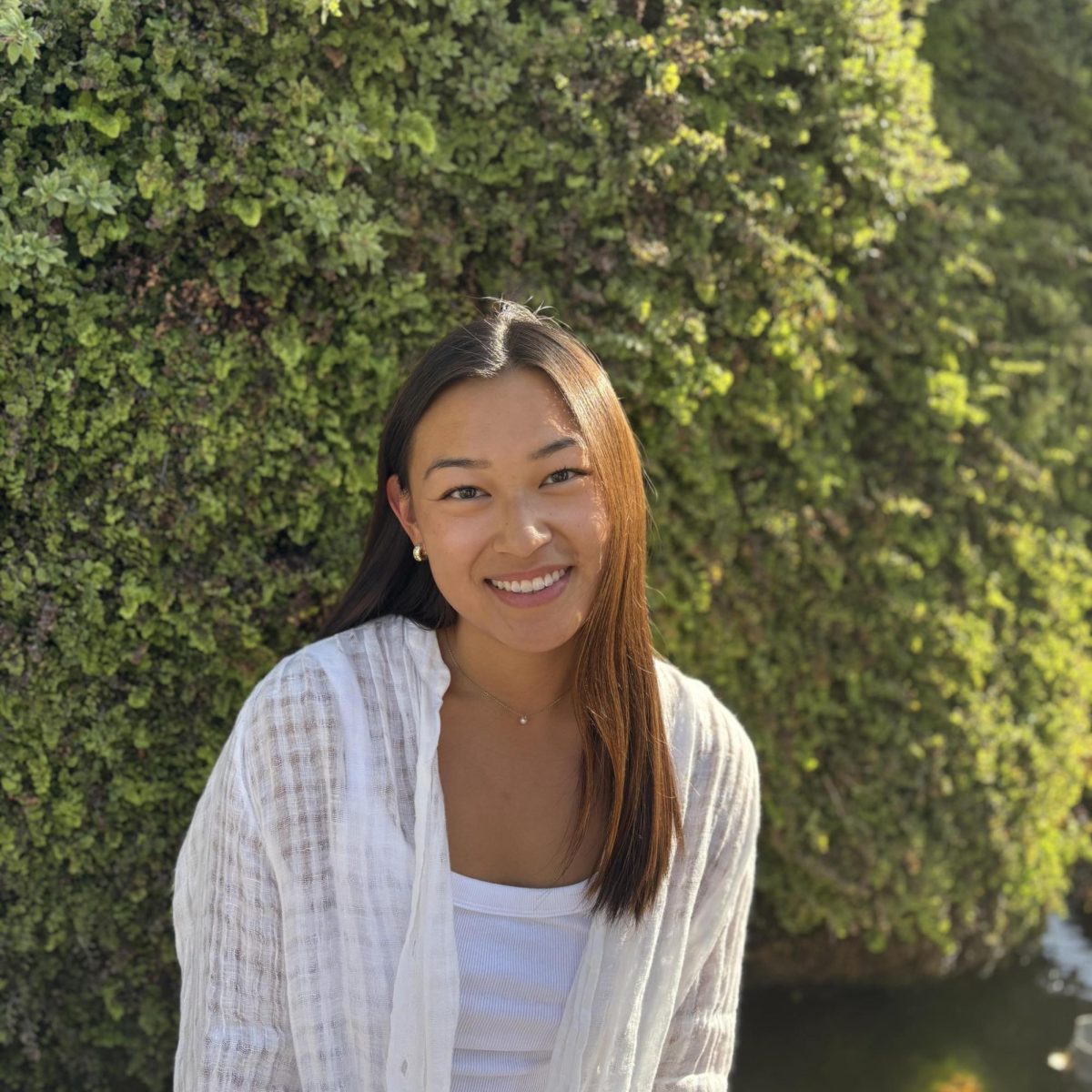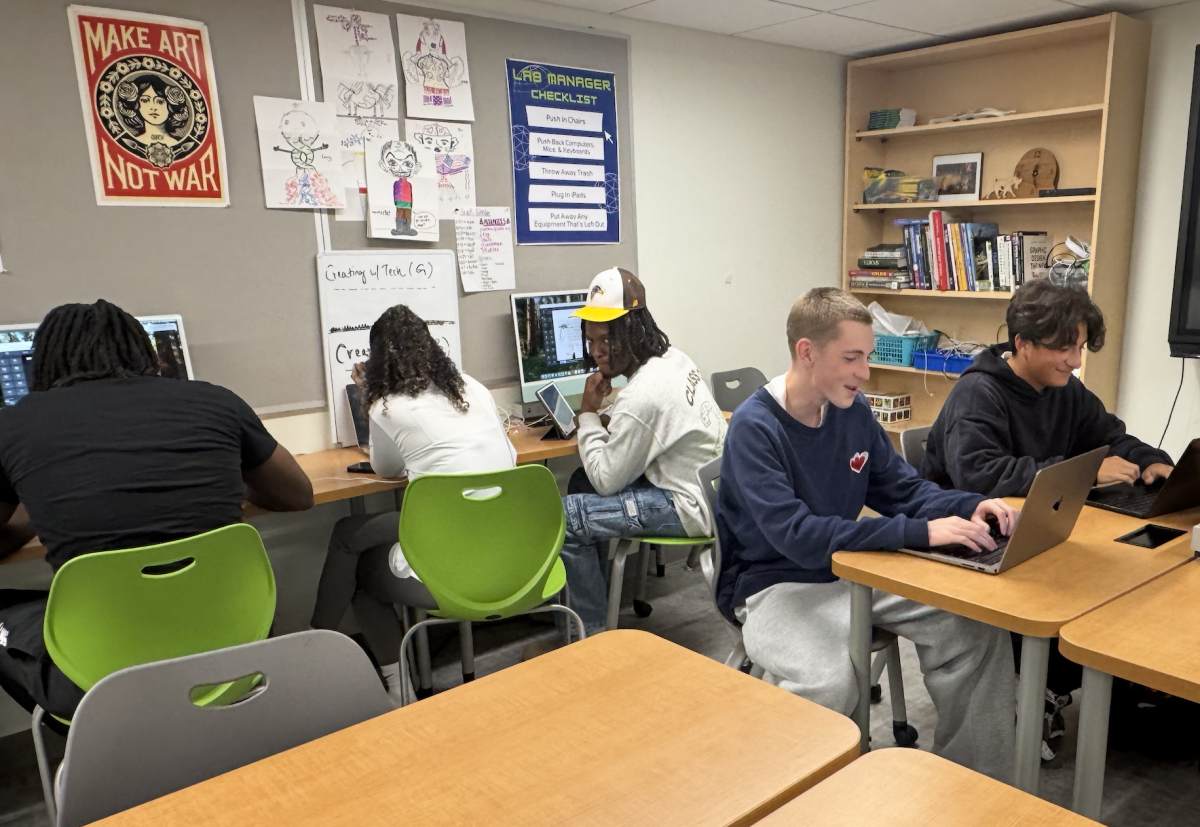Miriam Rock: Goofy, Passionate, Nerdy
You can find her in her classroom right at the front door, excitedly reading Shakespeare, or working with the Quake team to plan upcoming Meetings for Worship. English teacher and Quakerism Coordinator Miriam Rock enters her third year at Friends Select with an evolving educational journey behind her.
Miriam’s love of teaching is partially inspired by her family. “It was sort of the family business,” she says. Miriam’s strengths and interests also correspond with the skills required to be a good teacher. “I really love helping, supporting people, and developing the skills to be independent. I love the opportunity of helping humans become themselves.”
After graduating from Yale, Miriam began teaching at another Quaker school in Maryland, but often came back to Philadelphia, where she was raised. “Every time I came home to visit, I would see the Philadelphia skyline and my heart would ache.” After years of visiting and reminiscing, she elected to move back.
Miriam decided that if a job opportunity at a school she respected came up, she would apply. “On my interview day [at Friends Select], I remember walking into the building and thinking ‘yup, this feels right.’ I trust my gut on these things, and [FSS] felt like a place where I could be myself and do good work.”
This inclination resembled her gut feeling about Yale. As many students know, Miriam considers her time at Yale an essential part of her education as both a teacher and a person. However, she also found it quite challenging. “It’s very humbling to be in rooms filled with people who were just so much smarter, cooler, and more interesting than I was,” she says.
Broadened social horizons also played a critical role in Miriam’s education at Yale. After attending J.M. Barack Academy, which did not have a very diverse student body, Miriam reveled in the diversity of perspectives and experiences she encountered at college. “The most powerful learning comes from friends. I was really lucky to learn from the people [at Yale],” she says.
It was in this environment that Miriam learned to “let [her]self fail.” As a self-proclaimed perfectionist, Miriam spent high school “really afraid of failure. [She] worked however hard it was needed to be perfect.” Upon attending Yale, this mentality changed. “It was this glorious release. There was no chance of my being the best, so I was able to stop trying and just start learning. I made a conscious choice to not care about grades and just enjoy the process. I think that was really formative for me,” she notes.
Miriam also mentions that as a teacher, “it makes it hard to see students at Friends Select having a drive for perfectionism and letting it negatively affect their mental health, and I can really relate to that.”
Miriam says she had a “total goody two shoes” persona in high school. Once she got to her senior year of high school, though, “the rebellious streak came out a little bit.” In college, she recalls one particular story in which she and a few classmates took issue with a certain professor. She describes her own behavior as “terrible” and “disrespectful.” “As an adult I feel really guilty about how disrespectful I was, but as a kid I think it was a really important experience because I challenged authority for the first time.” Now, she makes an effort to “embrace the quirks” and not let others’ perspectives of her define her personality. She would define her own personality as “goofy, passionate, and nerdy.”
In terms of her own passions outside of teaching, Miriam loves spending time outdoors, cooking, and exercising. She bikes, hikes, and lifts at home. “There is something literally and emotionally empowering about being a strong woman,” she says.outside
Miriam says that her relationship with her mom, similarly a high school English teacher (for 35 years), has influenced the person she is today. Instead of feeling the “need to impress” her mom like mentees often do, she is comfortable running tons of ideas by her and knowing she will get honest feedback and criticism.
Miriam teaches English 10 and multiples senior electives at FSS. She believes that teaching different grades allows for very different experiences. While she loves to have intellectual debate with her senior Shakespeare students, her “1oth graders are such goofballs. One of my mentors said to me once: ‘10th grade is the last year of childhood.’ They make my day by being their awkward, ridiculous selves.”
Although she appreciates her sophomores, Miriam’s favorite grade is the class of 2022 because “they are no one’s favorite grade, and I like the unexpected. I think the juniors are a great example of growth. They were horrendous their freshman year, and they lowered our expectations. Instead of making that part of their identity, they turned it around. I respect the growth story.”
This year, hybrid-learning has forced Miriam to adjust her teaching techniques. Miriam previously ran all her classes in a circle arrangement, and she now replicates the “intimacy of the classroom” by asking in-person students to join her Zoom meetings as well. She says that while “it’s not possible to fully replicate the spontaneity of an in-person class, I think we are building community and having good discussions. It is helping me grow as a teacher.”
In order to mitigate the alienation caused by COVID-19, Miriam chats with the completely virtual students in office hours and before class. She actively tries to balance her attention given to both hybrid and virtual students, and finds that building a comfort in the class is very beneficial. “I hope that my jokey candor builds that connection,” she says.
Rosie Taranta ‘23, a new student of Miriam’s, really enjoys English class. “For people like me who can’t focus for long periods of time, it’s nice because we change it up a lot. We also connect what we are learning in class to real life situations and current events,” she says.
May Colgan ‘23 agrees. “Because everyone is logged on to zoom, it doesn’t feel like [we are] missing out, which can happen as an all-iSelect student,” says May. She notes that conversation feels “organic” and the teaching methods are helpful for replicating an in-person community.
Isabella Sexton-Drajem ‘21, a new senior, adds that the class is “very inclusive. We are heavily supported by Miriam with feedback and help with revisions. The class is very engaging with lots of different types of assignments.”
Miriam also serves as the faculty advisor to Quake and the faculty Quakerism coordinator. As a teacher, she values having a space to focus on building “communal leadership.” She notes that she is increasingly impressed by the productivity and the comfortability of members with one another.
Her one piece of advice to students is to not spend too much time working on school work and to prioritize other interests instead. “There are moments when life is real, and other things [outside of school] matter more.”





























